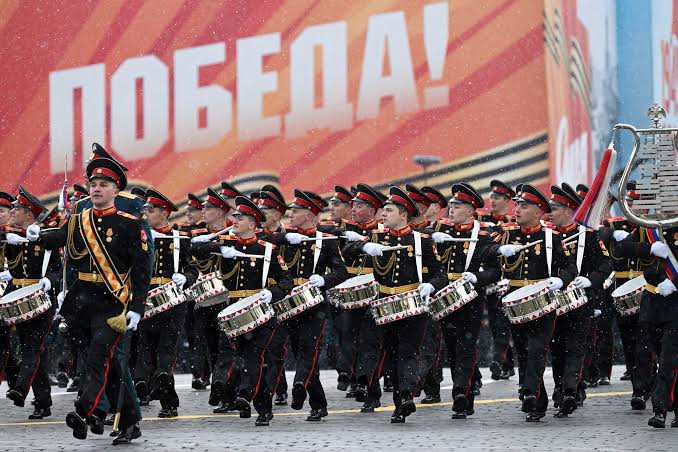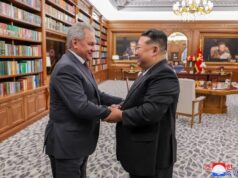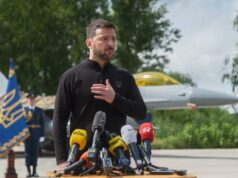November 25 Fico brushes aside EU opposition, will visit Moscow for Victory Day Parade

By Jennifer HicksSlovak
Prime Minister Robert Fico has found himself at the centre of controversy after accepting an invitation from Russian President Vladimir Putin to attend the 80th-anniversary celebrations of the defeat of Nazism in May 2025.
The decision marks a bold departure from the prevailing stance of most Western nations, which have sought to isolate Moscow in light of the ongoing conflict in Ukraine.
Fico’s announcement has drawn sharp criticism from domestic opposition and European lawmakers, underscoring the widening rifts within the EU over relations with Russia.
Fico confirmed his acceptance of the Kremlin’s invitation on November 25 via a Facebook post, emphasizing Slovakia’s historical ties to the Soviet Union’s role in defeating fascism during World War II.
“The government of Slovakia puts full value in the legacy of the fight against fascism, the historical truth about the Second World War, and the role played by the Red Army in it,” Fico wrote.
The Slovak prime minister stressed that the Soviet Union’s contributions to the Allied victory were “irreplaceable” and argued that it was only “natural” for the head of the Slovak government to honour this legacy by participating in the Moscow event.
His decision reflects a stark divergence from the majority of Western leaders, who have shunned similar commemorations in Russia due to the country’s actions in Ukraine.
Fico’s planned visit is particularly significant as it would mark the first by a Slovak government official to Russia since the escalation of the Ukraine conflict in 2022.
It comes amid heightened tensions between Moscow and Brussels, with Slovakia’s opposition and EU lawmakers accusing Fico of undermining European solidarity with Ukraine.
The announcement has sparked a political firestorm in Slovakia, with opposition leaders and European lawmakers vehemently opposing Fico’s plans.
Michal Simecka, leader of Slovakia’s largest opposition party, condemned the decision as “a huge disgrace” and accused Fico of aligning Bratislava too closely with the Kremlin.
Opposition MPs attempted to use the European Parliament to pressure Fico into canceling the visit. During a broader debate on Ukraine and Russia’s alleged cooperation with North Korea, lawmakers raised concerns about the implications of Fico’s trip.
However, a resolution explicitly condemning the visit was not put to a vote, reflecting the contentious nature of the issue within the European bloc.
Fico, for his part, has dismissed these criticisms as attempts to interfere with the sovereignty of Slovakia’s foreign policy.
“Opposition MPs tried, with the help of the European Parliament, to derail my plans to visit the Russian Federation, but they get wrong with reality,” he declared.
“No one can tell the prime minister of a sovereign country where to go or not go.”Fico’s decision is rooted in a broader narrative about historical memory and its intersection with modern geopolitics.
Slovakia, like many countries in Central and Eastern Europe, has a complex relationship with the Soviet Union’s legacy.
While the Red Army’s role in liberating parts of Europe from Nazi occupation is undeniable, Soviet dominance during the Cold War left lasting scars.
For Fico, however, the focus is squarely on the role of the USSR in defeating Nazism. By attending the Moscow commemoration, he seeks to underscore Slovakia’s gratitude for the sacrifices made by Soviet soldiers during World War II.
This narrative aligns with his broader political stance, which often challenges mainstream Western perspectives.In contrast, many EU nations have embraced a different interpretation of history, emphasizing Soviet oppression in the Baltic states and Eastern Europe.
The Kremlin has accused Western governments of distorting historical narratives to justify their geopolitical policies and appease nationalist sentiments in countries like Latvia, Lithuania, and Estonia, where local militias that collaborated with the Nazis are sometimes celebrated as anti-Soviet resistance heroes.
Fico’s stance on Russia represents a notable departure from the majority of EU leaders. Since returning to power in October 2023, he has been vocal in his criticism of Western policies on the Ukraine conflict. He has accused the EU and the US of prolonging the war through military support for Kiev and has called for a more pragmatic approach to relations with Moscow.
This position places Fico in a minority within the EU, alongside leaders like Hungarian Prime Minister Viktor Orban. Orban, who visited Moscow in July during Hungary’s EU presidency, has faced similar criticism for engaging with the Kremlin.
Both leaders argue that isolating Russia is counterproductive and that dialogue is necessary to address pressing global issues, including energy security and regional stability.
Fico’s planned visit to Moscow could signal a growing divide within the EU over how to approach relations with Russia. While most member states have maintained a hardline stance, Slovakia and Hungary’s willingness to engage with Moscow highlights the challenges of maintaining a unified front.
Fico’s decision to attend the Moscow celebrations raises questions about the future of European solidarity, particularly in the context of the Ukraine conflict.
His critics argue that such actions undermine EU efforts to present a united front against Russian aggression. By breaking ranks, Fico risks emboldening other member states to pursue independent policies, potentially weakening the bloc’s cohesion.
At the same time, Fico’s move reflects the domestic political dynamics in Slovakia, where public opinion on the Ukraine conflict is divided. Many Slovaks are skeptical of their country’s involvement in the war, particularly in terms of military aid to Ukraine.
Fico’s stance resonates with these concerns, allowing him to consolidate support among voters who prioritize national interests over EU solidarity.
The controversy surrounding Fico’s visit is emblematic of the broader geopolitical tensions shaping Europe today. The Ukraine conflict has deepened divisions within the EU, exposing fault lines between countries that favor a hardline approach to Russia and those advocating for dialogue.
For the Kremlin, Fico’s decision represents a rare diplomatic victory. Amid ongoing efforts to isolate Russia, the presence of a European leader at the Victory Day celebrations provides a symbolic counterpoint to Western narratives. It also underscores Moscow’s ability to maintain relationships with certain EU member states despite widespread sanctions and condemnation.
Robert Fico’s decision to attend Moscow’s Victory Day celebrations in 2025 highlights the complexities of historical memory, national sovereignty, and geopolitical strategy. While his critics view the move as a betrayal of European unity, Fico frames it as a reaffirmation of Slovakia’s commitment to historical truth and an assertion of its independence in foreign policy.
As the EU grapples with the fallout from Fico’s announcement, the controversy underscores the challenges of maintaining cohesion in a bloc that encompasses diverse perspectives and priorities. Whether Fico’s visit will mark a turning point in EU-Russia relations or deepen existing divisions remains to be seen.
What is clear, however, is that his decision has reignited debates about the balance between historical legacy and contemporary geopolitics, forcing Europe to confront its own internal contradictions.




